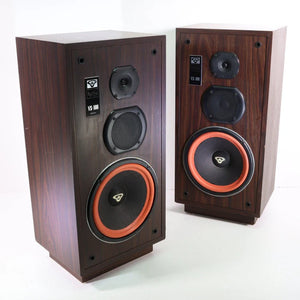We are unable to reply to comments, so please message us directly if you have a specific question regarding products, shipping costs, etc. Our office number is (480) 207-1511. Our email is hello@spencertified.com. You can also message us on Facebook. Commonly asked questions and answers can be found on our FAQs page here.

BETAMAX VS VHS: THE EPIC VIDEOTAPE FORMAT WAR
THE SIMILARITIES AND DIFFERENCES BETWEEN BETA TAPES AND VHS TAPES
There’s a reason why you have that home video of your grandpa slipping down the stairs or your aunt falling into the pool on VHS tape. By the late 1980s, the VHS format had dominated the home entertainment industry and remained king until the DVD shimmied its way onto the scene several years later. The era of the VHS is one that most people remember fondly, and the format itself is a nostalgic reminder of good times gone by.
Yet the VHS tape didn’t exist in a vacuum. It had competitors jockeying for the position of king, and one big competitor fought so hard against the VHS tape that the VHS almost lost the videotape format war. The competitor’s name? Betamax.
So let’s take a peek into the history of the Betamax and the VHS to see why VHS came out on top.
WHAT IS A VHS TAPE?

A VHS tape is a consumer-level analog video recording on magnetic tape cassettes. The heart of these cassettes are the two spools of magnetic tape. Designed to prevent unspooling, each tape has “sensors” that prevent the tape from potentially unraveling inside the VCR. This is done using clear tape that provides a signal to the VCR that the end of the tape is near.
WHAT IS A BETAMAX TAPE?

A Betamax tape is consumer-level analog video recording on magnetic tape cassettes. It’s also known as Beta. Betamax tapes are half an inch wide and the longest cassette can record up to five hours of footage; most Beta cassettes can record up to an hour.
SIMILARITIES

We’ll start with the obvious ones - both Betamax and VHS are types of videotape held within a black plastic case. They’re both analog video and audio storage mediums that can playback and record movies and television shows. Both need to be played on a video tape recorder machine.
These formats were also invented around the same time, during the mid-1970s. Beta tapes were released in 1975 by Sony, and VHS tapes were released the next year in 1976 by JVC. So both technologies provided the first ways to record television shows onto tape. This technology also revolutionized the movie industry as it allowed consumers to own physical copies of their favorite movies. This meant both formats were competing to be the one movie industries used as the standard format. They kept toe-to-toe in the format war footrace for most of the 1970s and into the early 80s, despite - or perhaps because of - their differences.
DIFFERENCES

Beta tapes were a major contender in the videotape format war, largely due to their superior sound and picture quality. With better playback resolution (up to 500 lines of horizontal resolution to VHS’ 240 lines) and color reproduction, Betamax had the support of serious home video enthusiasts. Betamax machines could also play and fast-forward tapes quicker and “bookmark” certain parts of the tape for viewers to watch later.
Plus, Betamax tapes are more compact compared to VHS tapes. Both the tapes and their cases are smaller, making them rather convenient to transport and store. Betamax cassettes have a thicker case too despite their compact size, so they feel more durable compared to a VHS tape.
On the other hand, while performance-wise the Betamax format outshines the VHS tape, it is the VHS that boasts a longer recording time (up to four hours to Betamax's initial one hour), which turned out to be more important in the consumer market. Their longer recording time also quickly became favored by movie studios. This meant that VHS tapes at movie rental stores became more readily available. Plus, compared to the Betamax machines, VHS players were inexpensive, making them more accessible to consumers.
However, the most vital difference of all, the one that perhaps became the nail in the coffin for Betamax, was not a difference between the two formats themselves, but rather a difference in marketing and production. While Sony remained protective and kept strict control over the Betamax format, JVC allowed other manufacturers to license VHS technology, flooding the market with VCRs and VHS-compatible devices. This is what drove down the price. So, in the end, JVC’s VHS won that format battle.
SUMMARY
While Betamax and VHS both fought valiantly, VHS did eventually come out on top. Thanks to their differences, each had their own fanbase, but the VHS tape and the VCR overtook Betamax as a whole. If you want to parse it down to bare bones, the VHS tape’s convenience won out over Betamax’s quality. Their cheaper cost and longer recording times paired with JVC’s marketing tactics meant the VHS tape came out crowned king at the end of this videotape format war.
However, kingdoms fall as new wars start, and the VHS tape got knocked off its proverbial throne as technology led the way to the DVD, the Blu-ray, and digital streaming. But while analog videotapes are certainly outdated, they’re not yet dead!
That’s where we come in: whether you’re a lover of videotapes or you need a machine to play your old VHS or Betamax tapes on, you’re in luck! SpenCertified specializes in vintage audio video gear, and we’ve got an incredible selection of both VCRs and Betamax machines. You can find those here and here, or by following the links below. Thanks for reading! Have a fantastic day.
https://spencertified.com/collections/refurbished-vcr-vhs-players



Leave a comment